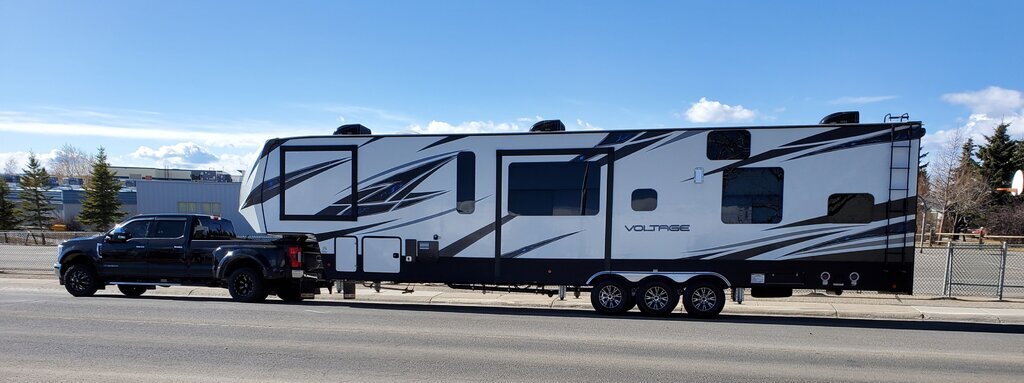Finance guy here, and though I know this is always a hot topic (buying new vs buying gently used), I am going to jump in here to maybe tamp down the "cognitive dissonance" that might be created by those that categorically recommend to buy used. Like every other decision in life, the answer is “it depends”, on your situation and priorities.
Every major purchase I have made (cars, boats, etc), has thus far been new. For me the operative decision factor is how long you plan to own the asset, and whether you plan to replace it with another similar asset when you sell it. The longer you plan to own that specific unit, and the more times you would have had to “trade up” to get what you ultimately want, the more likely it is to make sense to buy new and buy once.
Let’s take the extreme case at one end of the spectrum – you buy the rig, and after a year decide to sell it and never buy another one. In that case, the strategy of buying used definitely makes more sense – otherwise you would have taken the entire brunt of the “drive it off the lot and take a huge depreciation hit” impact that others mention, and the pain of that depreciation only buys you one year of usage. That is a high price to value ratio.
Now on the other end of the spectrum, let’s say you are someone that gets into this and stays in it for 15-20 years. And let’s say over that time period, you go up in size and quality 2 or 3 times. Every time you trade up you 1) pay sales tax on the next purchase which you never recoup, 2) have the transaction costs of buying and selling (commission, inspection etc.), and 3) have the hassle of having to sell while you are buying or take less than retail value on your trade-in, which is in itself a case of “excess depreciation”.
In the latter case, the best option would have been for you to buy the last rig you bought up front new. The average depreciation over the time that you owned it would not be that much different from the buy used scenario, and you avoid all of the repeat transaction costs. However, if there is any chance that you might end up "1 and done", then obviously this is not the right plan.
Now that is easier said than done – it is not easy to know what you want definitively on a first purchase, but I would rather invest excess time in getting as close as I could to what works for me with an extensive assessment, analysis and reflection, and for any misses, work around them. Yes, there is no substitute for experience, and you might miss a feature or floor plan component that you would like to have in hindsight, but stacked against the hassle and cost of trading up, that is not a huge price to pay. You are also not beholden to what is available on the used market, so you can get exactly what you think you want when you buy new.
The only thing working against this strategy is the fact that quality control being what it is in this industry, and the pounding a rig takes day in and day out, there is a benefit of buying something that has been shaken down by a previous owner, but then again, shaken down can also mean shaken apart!
I am also looking to buy a first rig, and will buy new as well. I also believe in “buying up” in terms of brand reputation, both for the quality and after sale support. While I have come to the realization that the support from the dealer network is suspect at best, I always seek to find the manufacturers that have the best reputation for service and quality. I would rather give up a few feet than compromise on that.
Regarding MSRP vs out the door pricing, I have also found there is much less clarity on MSRP as compared to the auto industry. It is also a sellers market now, so negotiating room is not great. But as a baseline, I start with show discounts, which may not be “best possible” price, but is pretty close. Looking through all of the blogger videos from past shows, it does seem like 25-30% is a reasonable target in a normal market, but might be tough to get right now.
Good luck with your search!

